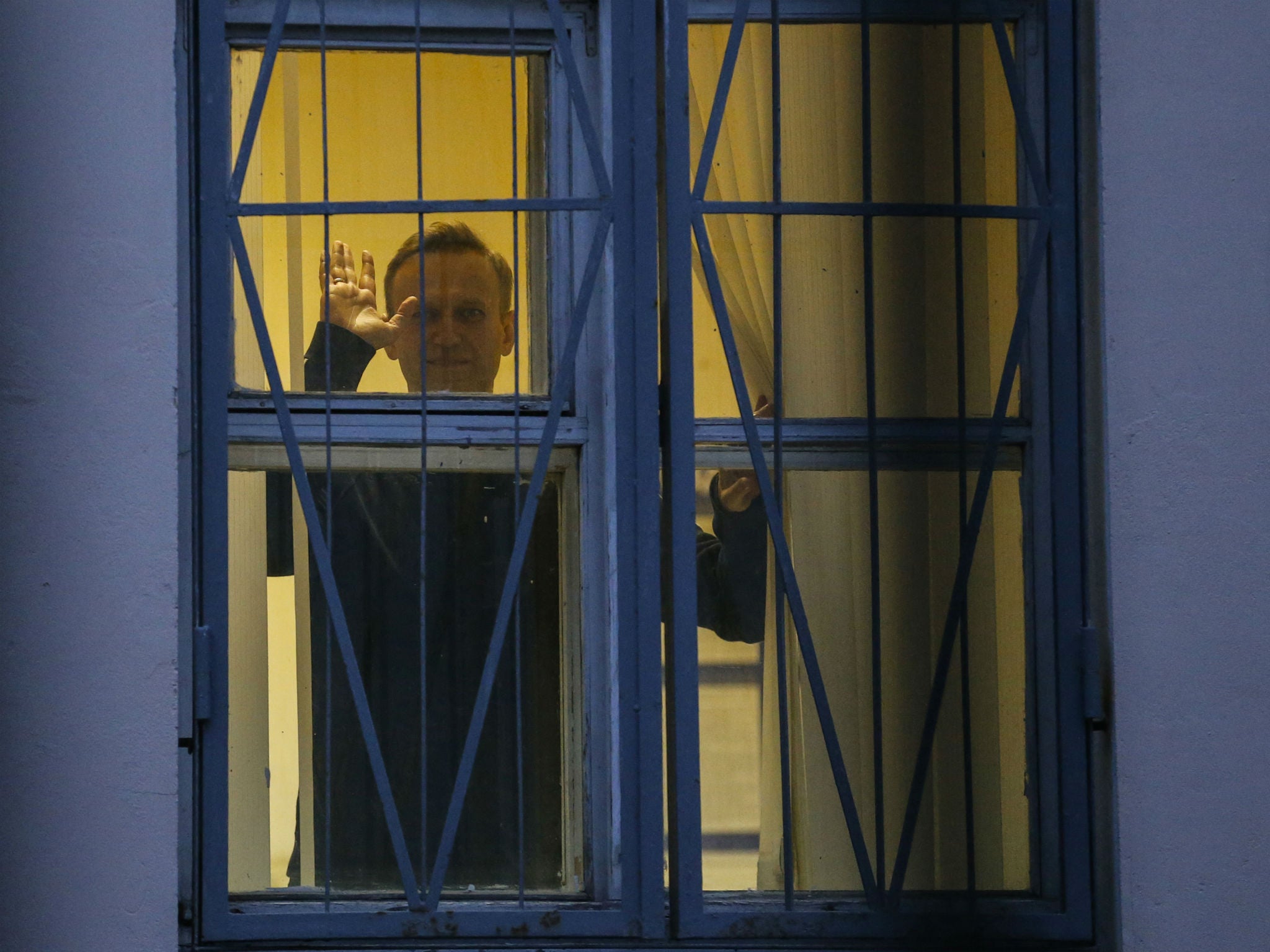Russian opposition leader Alexei Navalny released having been detained ahead of political rallies
Navalny has been ordered to attend a Moscow court hearing

“You’ve come to arrest a dangerous criminal I see,” says Russian opposition leader Alexei Navalny in a video he released showing his detention ahead of attending an opposition rally.
Mr Navalny, who announced a presidential run last year, was on his way to a rally in Nizhny Novgorod, Russia’s fifth city when he was taken into custody at his Moscow home.
Over the course of several hours before he was eventually released pending a court appearance in Moscow on Monday, Mr Navalny live streamed his detention. He urged protesters to ignore detentions of other members of his team and to come out onto the streets in Nizhny Novgorod as planned. Despite a strong police presence, many of them did.
Mr Navalny’s ability to organise crowds across Russia has not gone unnoticed by the authorities. He surprised many when, in March last year, he brought tens of thousands on to the streets across Russia. The rallying call was a YouTube video containing allegations of corruption against Prime Minister Dmitry Medvedev, which has been watched by nearly 25 million. Mr Medvedev dismissed the allegations that he secretly accumulated wealth as “nonsense” aimed at “achieving a political result”. The Kremlin also dismissed the video, and Mr Medvedev has faced no action over the allegations.
The Kremlin has declared Mr Navalny’s declared presidential ambitions for 2018 to be invalid, on the basis of a criminal conviction for fraud that many consider politically motivated. But the moves on Monday would seem to suggest they were taking no risks.
According to a statement released by the press service of the Moscow police, the opposition leader had been detained for “repeated calls to participate in illegal public events”.
That allegation was disputed by Mr Navalny, who said the rally had, in fact, been agreed with authorities. Writing on Twitter, he added that he had not been informed of the reasons for his detention: “What is post-truth? It’s when you’re sitting in the police station, you’ve seen no charge sheet, but the media is telling you that there is one.”
During the course of Friday, several members of Mr Navalny’s team were detained. In Nizhny Novgorod, chief of staff Leonid Volkov was taken into custody. Writing from a police cell, Mr Volkov claimed that the Kremlin had demonstrated “legs made of clay”, and had been “scared” into action in the wake of recent, well-attended rallies in support of Mr Navalny’s presidential bid. Like Mr Navalny, Mr Volkov was later released from custody and told to attend a court hearing in Moscow on Monday.
In truth, it is unclear the extent to which these latest rallies played a role in the Kremlin’s thinking. While impressive by numbers, they did not make headlines in the same way that the March protests did. According to Russian political analyst Mikhail Vinogradov of the St Petersburg Politics Foundation, the decision to detain Mr Navalny was most likely “the result of six months of calculations” and taken in response to the “genuine shock” of those earlier protests.
Samuel Greene, director of the Russia Institute at Kings College London, agrees that the latest detention was a long time in coming.
“Over time, both sides have been showing what they are capable of, without going too far,” he told The Independent. “Navalny is demonstrating his networks, his supporters, while the Kremlin showing it can act in response. But the red lines aren’t clear and the Kremlin can move them whenever it wants.”
The future for Mr Navalny’s movement is unlikely to be decided by this single detention. But Mr Navalny has faced prison before, having been handed a 15-day sentence for resisting arrest following the protests in March and serving 25 days in the summer for repeatedly violating a controversial law on organising public meetings.
But it does indicate the Kremlin’s clear intention to keep him far away from presidential elections next spring.
Whatever happens next, Mr Navalny can already claim success.
“His movement is like a gas – expanding, finding and filling any place that isn’t already occupied by the authorities,” Mr Greene said.
Join our commenting forum
Join thought-provoking conversations, follow other Independent readers and see their replies
Comments